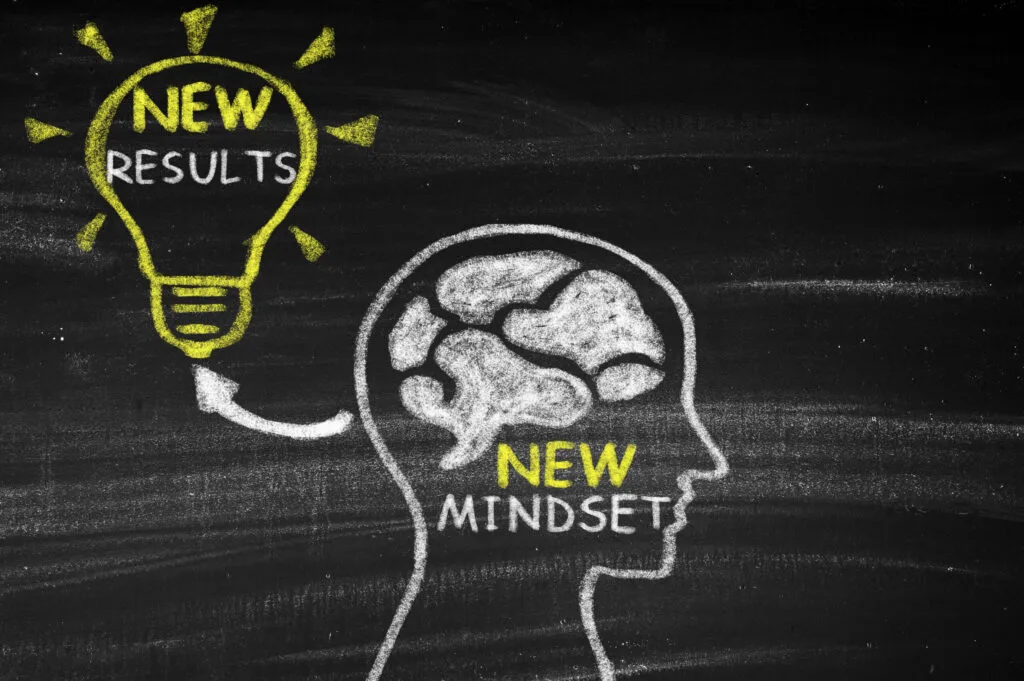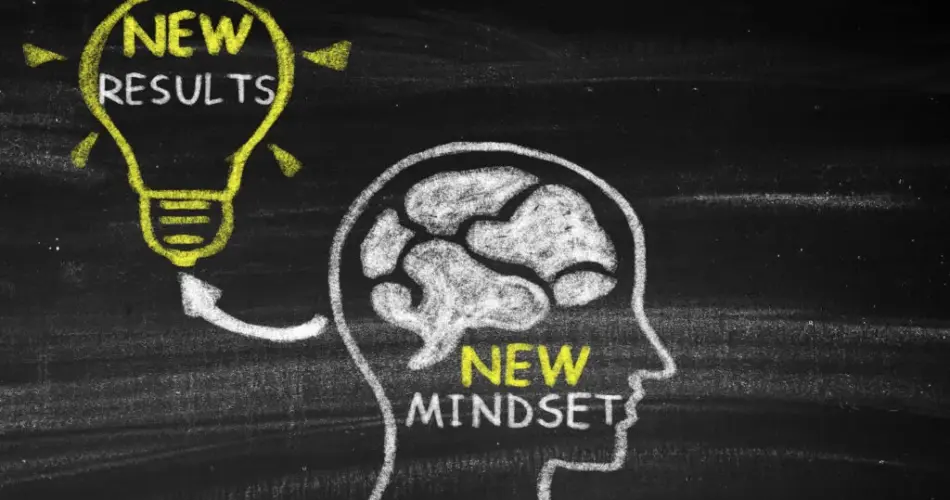Table of Contents

Embarking on a journey to reshape one’s thinking can lead to profound personal growth. Unlocking Mindset offers five transformative steps designed to free individuals from limiting beliefs and empower them with resilient, expansive ways of perceiving the world around them. These actionable strategies foster an environment where positive change thrives, equipping people with tools for self-improvement and sustained success in their endeavors.
With commitment and guidance, anyone can learn how to adjust their mindset for better outcomes both personally and professionally.
Cultivate Self-Awareness for Mindset Shift
Self-awareness is a key component when developing a resiliency mindset. It’s the sharp understanding of one’s own emotions, actions, and thoughts that lays the foundation for mental strength and adaptability in challenging times. As educators have discovered, nurturing this trait can lead to profound shifts in thinking.
For instance, recognizing professional shortcomings openly helps foster an environment where feedback becomes constructive rather than critical. Incorporating self-aware practices into daily routines empower teachers and staff members within educational institutions to embrace resilience not merely as survival but as growth through adversity. Teams with heightened psychological safety often find collaboration more fruitful; they challenge norms confidently while contributing fresh perspectives essential for innovation.
Moreover, striking balance between perseverance during trials and finding meaning or joy outside them encourages comprehensive development among school leaders and their teams alike. This equilibrium ensures both personal well-being along with collective progress which crucially aligns with unlocking transformative mindsets—where individuals don’t just withstand difficulties—they evolve because of them.
Challenge Limiting Beliefs Vigorously
Our minds often get trapped by our own limiting beliefs. These invisible chains aren’t born out of truth but grow from what we think is true—this false reality shapes how we view the world and ourselves. Such biases make us reject facts that don’t fit into our preconceived notions, a phenomenon psychologists call ‘confirmation bias.’ It convinces us that only supporting evidence matters while any conflicting information gets ignored.
The peril lies in this self-deception; it blinds people to a broader understanding and creates an illusion of being right more than they actually are. This selective perception fuels prejudice as well, leading many to draw broad conclusions about others without considering individual truths. To combat these constraints on thought, one must be willing to question deeply held assumptions aggressively — even those based upon nothing but faith or habit can lead you astray if left unexamined.
Recognizing personal biases marks the first step towards freedom from such mental confines because when unchecked, they forge barriers around potential and progress. Unlocking your mindset starts with challenging every belief vigorously; scrutinize them for cracks or inconsistencies that could indicate their fragility rather than accepting them at face value. To transform thinking takes courage—a readiness to confront uncomfortable truths—and through this process begins genuine change within oneself leading toward clearer vision untainted by misplaced convictions.
Embrace Positive Reinforcement Techniques
Embrace positive reinforcement to shape thinking. This involves focusing on what you do well, not the gaps where you lag behind others. Recognize your strong points and victories, no matter how small they seem.
Others see value in these traits; so should you. Building up self-confidence comes from within and empowers a person for life’s many roles – be it personal or professional success requires this inner belief system as fuel. Challenge any doubt that whispers of failure or unworthiness by questioning its truthfulness – are those doubts fact-based?
Often such negative self-talk is rooted more in fear than reality, impeding progress towards goals. Replace harmful notions with constructive ones to break free from mental constraints. Say yes to chances knowing errors can lead down new paths just as easily as triumphs can push one forward into untapped potential zones.
Lastly, add kindness towards yourself into daily practice – treating oneself kindly enhances confidence levels, offering resilience against setbacks while steering thoughts toward positivity and strength—a crucial step for mindset transformation.
Foster Continuous Learning and Growth
To foster continuous learning and growth, one must grasp the brain’s true nature. It adapts and expands with each new challenge met in math or any discipline. Carol Dweck’s research highlights this dynamism; her findings reveal that a student’s approach to mathematics can significantly sway their success rates.
Kids who view math struggles as opportunities for development tend to outshine peers sticking to fixed mindsets on tests and active participation in class settings. Obstacles will arise — some face them early with basic subtractions while others during advanced phases like calculus – but it’s the resilient mindset that equips children for persistence through these trials. Teachers play a pivotal role too, by altering perceptions around mathematical prowess starting young – demonstrating clearly how brains aren’t static; they evolve tremendously when challenged consistently over time.
Video resources from reputable documentaries offer visual evidence of neural pathways forging anew much akin to bridge construction across vast gaps – reinforcing hope among learners doubting their abilities at numbers-related endeavours. Ultimately, fostering such an ethos within educational realms sets students up not just for present victories but installs enduring practices contributing towards lifelong intellectual agility well beyond academic borders.
Practice Mindful Reflection and Adaptation
To practice mindful reflection, one must pause regularly to look inward. This process involves assessing thoughts and actions with honesty. It’s critical for identifying habits that serve or hinder progress.
Reflection leads to keen insights about one’s mental patterns. Adaptation follows as a natural step after reflection. Here, the person applies lessons from past experiences to shape future behavior.
They adjust strategies in light of new information gleaned from self-assessment practices—this aids in fostering resilience and an agile mindset. Experts stress the importance of setting aside time daily for this purposeful introspection—it helps maintain focus on goals while allowing flexibility when confronted with change or challenges. Research shows individuals who adaptively reflect are more likely to achieve personal growth; they successfully navigate life’s complexities better than those who remain fixed in their ways.
In essence, mindful reflection combined with adaptation equips people with tools necessary for continual evolution amidst life’s flux.
UnlockingMindset empowers individuals to revolutionize their thinking with five potent steps: embracing resilience, challenging limiting beliefs, nurturing self-confidence, fostering continuous learning, and cultivating mindfulness. These strategies support personal transformation by shifting perspectives towards growth and possibility. Embracing these practices can significantly enhance life’s quality while helping achieve both professional goals and personal aspirations efficiently.
